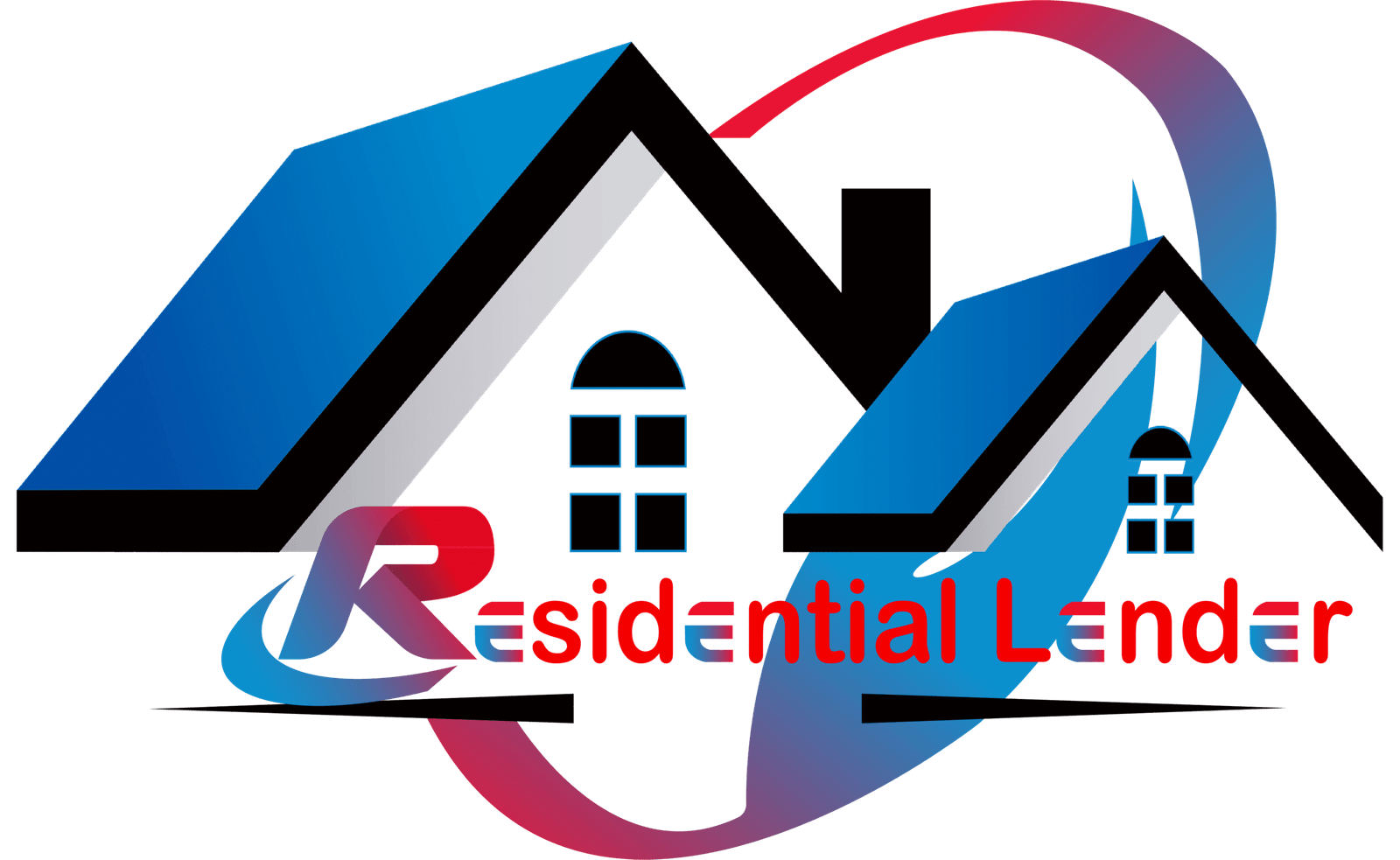It’s a great time to invest in real estate. Residential properties appeal to investors and people who want to be renters because they offer passive income, stable returns, and long-term value growth. You need to know how the economy works to rent homes and make money. You will learn more about residential investment loans after reading this guide. It will show you how to find different sources, such as traditional and specialized lenders. It will also discuss how commercial lenders, which give loans for investment properties, differ from correspondent lenders, who provide loans for rental properties. Once you know these differences, you can choose the best first-time home investment loan for your wants and budget.
What You Should Know About Residential Investment Loans (Don’ts)
Don’t Confuse with Primary Residence Loans: Investment Loans vs. Traditional Mortgages
| Feature | Investment Loan | Traditional Mortgage |
| Purpose | Rental Property | Primary Residence |
| Interest Rate | Generally Higher | Generally Lower |
| Down Payment | Higher (15-25%) | Lower (3-20%) |
| Loan-to-Value Ratio (LTV) | Lower Maximum LTV | Higher Maximum LTV |
Both business loans and regular mortgages can help you buy a home, but they are best used for different things. It is essential to know these changes before you start investing in real estate.
Traditional mortgages are made for your primary residence, which is the house you’ll live in. People who get them usually pay less interest, have better loan terms, and can sometimes make down payments as low as 3%. This is because homes owned and lived in by the owner have lower risk.
Investment loans, on the other hand, are designed to help people buy rental homes. Investment loans usually have stricter standards because lenders see them as riskier because of things like vacancy periods and changes in the market. In English, this means:
- Higher Down Payment: You may have to put down a more significant down payment, usually between 15% and 25% of the property’s value.
- Lower Loan-to-Value Ratio (LTV): The LTV shows how much the loan is compared to the property’s worth. The maximum LTV for investment loans will be smaller than regular mortgages. This means you’ll need to pay more of the purchase price with cash. Lenders mitigate their risk with investment loans by requiring a more significant financial stake from you. Understanding these differences will help you plan your finances effectively and position yourself for a successful entry into residential real estate investment.
Do Your Research Before You Apply For An Investment Loan
Now that you know the central differences between investment loans and regular mortgages, let’s look into them more. There are many loan choices for real estate investments, and each has terms, interest rates, and requirements for who can get it. Comparing apples to oranges, for instance, can lead to a disappointing shopping trip. For the same reason, you should learn about the different types of loans so that you don’t end up with an investment that doesn’t quite meet your needs.
Here’s why it’s so important to spend time researching:
- Find Unexpected Catches: Not all business loans are the same. Others focus on multi-unit buildings, while others only work with homes that need repairs. Finding a loan with better terms or lower rates that fit your investment plan is possible if you consider your choices.
- Save Money on Interest: Interest rates can significantly affect your total return on investment. A difference in rates that doesn’t seem like much can save you thousands of dollars over the life of the loan. You can find the best deal by researching rates from different loans.
- Find the Right Fit: Some lenders care more about your credit score than your rates and terms. Others might be more open to first-time buyers. When you research, you can find a lender whose requirements match your investing goals and financial situation.
You can save a lot of money and time by studying beforehand. Look into the different loan choices, compare interest rates, and get answers to your questions. If you study, you’ll be well on your way to getting the perfect investment loan that opens the door to a successful and profitable real estate business.
Don’t Go In Without Being Ready: Putting Together Your Loan Application Assets
It’s a good idea to get your important papers together before you start comparing loan options and calling lenders. Having them on hand makes the application process faster and shows possible lenders that you are ready. To get you started, here’s a quick list:
- Financial Strength: Tax Returns: This shows your income and tax obligations for the last two to three years.
- Financial Statements: Give balance sheets and accounts of profit and loss if you are self-employed.
- Investment Property Details: Property Information: A complete description of the property you want to borrow money for, including its location, purchase price, and type (e.g., single-family, multi-unit, etc.).
- Rental Income Projections: Even though it’s not always needed, showing how much money you think the rental will bring in in the future can help your application.
How to Apply for a Loan: What to Do and What Not to Do
Do Get Pre-Approved: Solidify Your Standing as a Serious Investor
Once you have all your paperwork and research started, you should take a crucial step to make you look like a more serious real estate investor: getting pre-approval for a loan. You can think of pre-approval as a financial green light—a signal from a provider that you are creditworthy and can afford to borrow a certain amount of money. This is how pre-approval helps you:
- Negotiating Powerhouse: Sellers will see a pre-approval letter as proof that you are a qualified buyer ready to move quickly. This gives you a significant advantage over other people in the market, giving you the confidence to negotiate more efficiently and get a better deal on your rental property.
- Fast-Track to Closing: A lot of your loan application is reviewed ahead of time during the pre-approval process. Once you find the right home, the closing process will go more quickly and easily. You won’t have to wait weeks for loan approval, so you can take advantage of time-sensitive chances and beat buyers who aren’t pre-approved.
- Peace of Mind: It also gives you peace of mind when getting pre-approved. If you know how much you can borrow ahead of time, you can only look at houses within your budget. You won’t have to be disappointed when you fall in love with a residence out of your price range.
In the competitive world of real estate business, getting pre-approval is an intelligent move that sets you up for success. It shows sellers that you are serious, speeds up the closing process, and gives you the information you need to make intelligent choices as you spend.
Work On Your Credit Score; It’s The Key To Getting Loans
To invest in real estate, you must have good credit. Lenders understand it as a global language, showing you are trustworthy and responsible with money. Regarding loans, the better the terms, the higher your credit score. Because of this, interest rates will be lower, which could save you tens of thousands of dollars over the life of your investing loan.
Here’s why it’s essential to put your credit number first:
- Opening Lower Interest Rates: Access to the best interest rates is possible with good credit. In the long run, even a tiny drop in the rate can significantly affect your profits.
- Qualifying for Better Loan Options: An excellent credit score makes getting more loans easier. You can get loans with lower down payments or more flexible terms, which would make the loan fit your business goals.
So, how do you get a credit score that a real estate tycoon would be proud of? Here are a few essential plans:
- Do Not Miss a Payment: Always pay your bills on time. Your payment history is the most important thing that affects your credit score.
- Reduce Debt Utilization: The difference between how much credit you use and how much you can borrow. Try to spend less than 30% of your credit card amount each month.
Focusing on making timely payments, smartly controlling your credit use, and looking into other options can help you build a credit score that lets you get better loan terms and maximize your investment.
Do Be Transparent with Financials: Building Trust with Your Lender
When investing in real estate, trust is crucial. Open communication with your banker is essential to get the best loan for your investment property. This means being open and honest about your financial information when applying for a loan. This is why being open is so important:
- Securing the Best Rates: Lenders like it when you are honest. You can show that you are responsible and increase your chances of getting the best loan terms and interest rates by giving a complete and accurate picture of your financial health.
- Avoiding Delays and Roadblocks: Keeping financial information from lenders or giving false information about them can slow down or stop the loan acceptance process. Transparency makes the application process smooth and quick.
- Building a Long-Term Partnership: Putting money into real estate differs from running a race. Being honest and trustworthy with your lender sets the stage for a long-term relationship that will help you for years. As your investing portfolio grows, your lender can become a helpful resource by giving you advice and help.
Remember that loans are not your enemy. They will help you with your real estate journey. Giving open and honest information about your money can help you get the best loan for your current investment and build trust for future projects. It makes it easier for you and your provider to work together to reach your shared goals because everything is clear.
See what your investment loan options are: exploring your choices
There are a lot of different kinds of residential investment loans, so there are a lot of choices for various types of investments and properties. Here is a quick look at a few of the most popular types of loans you’ll see:
- Conventional Loans: Banks and credit unions give these traditional loans suitable for investors with good credit and a significant down payment (15–20% of the purchase price).
- SBA Loans: The Small Business Administration (SBA) has loan programs for buying business property, such as buildings with more than one unit.
- Bridge Loans: These short-term loans are outstanding for buyers who want to buy a house and fix it up or hold on to it until they can get long-term financing.
- DSCR Loans (Debt Service Coverage Ratio): The borrower’s ability to repay the loan depends on how much money the property is expected to bring in. This type of loan is suitable for owners with bad credit or complicated income streams.
- Hard Money Loans: Hard money lenders offer quick loans with fewer strict requirements. However, the interest rates are usually higher, and the loan terms are shorter. They’re suitable for skilled investors who need to act quickly.
- Business Line of Credit (LOC): A revolving line of credit can be used for many investment needs, such as repairs or the first year’s upkeep cost.
- USDA B & I (Business and Industry) Loans: The government backs these loans, which can be used to finance businesses and properties in rural places that bring in money.
- Business Statement of Income (BSI) Loans: People can get these loans based on how much their business makes, making them perfect for self-employed owners.
- Term Loans: These fixed-rate loans give you a bulky sum for a specific time. They are usually used to buy a house or refinance an existing one.
- FHA Commercial Multifamily Loans: The Federal Housing Administration offers loans for multi-unit homes with lower down payments than other loans.
This is only a short list, but it gives you a good idea of the different kinds of loans you can get. But finding your way around this complicated world can be challenging. This is where dealing with a correspondent lender can make all the difference.
The Power of Correspondent Lenders
A real estate business that offers correspondent lending could be used instead of ResidentialLender.net as an example of a correspondent lender. They connect you with an extensive network of lenders. They have access to more loan programs and can help you find the best one for your business goals and financial situation. This saves you time and effort because you don’t have to look into and compare each provider separately.
Working with a trustworthy cousin lender will give you access to a broader range of investment loan choices. This will help you find the best one to help your real estate investment journey smoothly.
Do Consider Long-Term Goals: Choosing the Loan That Matches Your Investment Marathon
Putting money into real estate is like running a race, not a sprint. And just like in a long-distance run, picking the right gear (in this case, the correct type of loan) is essential for success. Even though possible gains might make you hungry, taking a step back and considering your long-term goals is critical. It’s necessary to make sure your loan fits with your business plan for these reasons:
Buy-and-Hold vs. Fix-and-Flip
Do you want to buy a rental property to get stable cash flow over the years (buy-and-hold), or do you want to fix a property quickly and sell it (fix-and-flip)? How you answer this question significantly affects the loan you pick.
- Buy-and-Hold: You might get the most rental income with a conventional or FHA business multifamily loan because it has lower interest rates and longer terms, making it perfect for long-term rentals.
- Fix-and-Flip: Hard money loans or bridge loans with shorter terms and faster access to funds can be helpful for fix-and-flip projects. This lets you move quickly and take advantage of market possibilities.
Long-Term Financial Health
Consider how your chosen loan will affect your finances. High-interest short-term loans might work for a quick fix-and-flip, but they can hurt your cash flow in the long run. On the other hand, buy-and-hold buyers can be more sure of their decisions with a fixed-rate loan that has a longer term.
You can have a good investment journey if the type of loan you choose fits with your long-term goals. Choose shoes that are comfortable, supportive, and made to last for a long time, like the right shoes for your race.
Finding the Right Lender: Dos and Don’ts for a Smooth Investment Journey
Now that you know about residential investment loans, it’s time to find the perfect lender to partner with on your real estate adventure. Choosing the right lender can significantly impact the success of your investment. Here are some essential dos and don’ts to guide you:
Do Partner with a Reputable Lender
Don’t settle for just any lender. Seek out a company with a proven track record and a solid reputation in residential investment loans. Look for a lender with experience in financing the types of properties you’re interested in, whether it’s single-family homes, multi-unit buildings, or fixer-uppers. An experienced lender will understand the nuances of investment financing and can guide you through the process smoothly.
Don’t Be Afraid to Shop Around
A lender with a good reputation can be helpful, but you need to compare rates and terms from at least three lenders. Do this to ensure you get the best deal and the most out of your investment. You can get quotes from more than one loan before making a choice.
Do Ask Questions
There is a lot of complexity and difficulty in understanding terms in business loans. Be bold and ask your backer things! A trustworthy lender will happily explain everything in simple, straightforward language and answer any questions. There is a lot of information out there that can help you make intelligent choices about your business journey.
The ResidentialLender.net Advantage
We’re proud to be your one-stop shop for residential investment loan needs here at ResidentialLender.net. Our team has a lot of knowledge in the field, and because we have in-house underwriting experts, we can speed up the loan approval process for our clients. This means you can focus on finding the perfect rental property while waiting times are reduced and problems are solved more quickly.
Additional Dos
- Shop Around and Compare Rates: Be bold and get quotes from multiple lenders. This allows you to compare interest rates, fees, and loan terms to find the option that best suits your financial situation.
- Ask Questions: A suitable lender will happily answer your questions and address your concerns. Don’t hesitate to ask for clarification on loan terms, eligibility requirements, or anything else that might be unclear.
Additional Don’ts
- Don’t Focus Solely on Interest Rates: While interest rates are essential, there are other deciding factors besides them. Consider other factors like loan fees, closing costs, and the lender’s reputation for customer service.
- Don’t Be Afraid to Negotiate: Loan terms are often negotiable. Discuss the loan’s interest rates, fees, or other aspects with your chosen lender.
By following these dos and don’ts, you’ll be well on your way to finding a reputable lender who can partner with you to achieve your real estate investment goals. Remember, the right lender can be a valuable asset in your investment journey, providing expert guidance and support at every step.
Giving you the tools you need to be successful with real estate investments
There are a lot of great chances to get rich and be financially free in the world of residential investment. But you must know what you’re doing before jumping into this exciting world. This help has shown you the most critical parts of getting a residential investment loan, with a focus on how important it is to:
A Lot of Research: You can choose the best loan option for your investment goals and financial situation if you know the different loan choices and how they work.
How to Get a Great Credit Score: You can get the best loan rates with good credit, saving you money in the long run.
Looking at a Range of Loan Options: Any loan program is available to meet your needs, from standard loans to fix-and-flip loans.
We at ResidentialLender.net want to help people who want to invest in real estate reach their goals. We provide a wide range of services, such as assisting people in getting traditional loans and giving them access to more choices through our super broker network.
Are you ready to begin building your wealth through real estate investments? Get in touch with ResidentialLender.net right away for a free appointment! Our team of experts on investment loans is ready to answer your questions, walk you through the loan application process, and help you get the money you need to make your real estate dreams come true.
FAQs
What if I’m a first-time real estate investor?
Don’t worry! Many lenders specialize in financing for first-time investors. Be prepared to provide a larger down payment and have a strong credit score to qualify for the most favorable loan terms. ResidentialLender.net can connect you with lenders who understand the needs of first-time investors and can guide you through the process.
I have bad credit. Can I still qualify for an investment loan?
It depends on the severity of your credit situation and the type of loan. While a high credit score is ideal, some lenders offer options for borrowers with lower credit scores. These loans may come with higher interest rates or stricter requirements. Explore your options and consult with a lender to determine your eligibility.
Are there any government programs that assist with residential investment loans?
Yes! The Federal Housing Administration (FHA) offers loan programs specifically for multi-unit residential properties, often with lower down payment requirements than conventional loans. USDA B & I loans are another option for financing income-producing properties in rural areas.
How much does it cost to close on an investment property loan?
Closing costs vary depending on location, loan type, and lender fees. Typically, they range from 2-5% of the purchase price—factor closing costs into your overall budget when calculating potential returns on your investment.
Do I need a real estate agent to find an investment property?
While not mandatory, a qualified real estate agent experienced in investment properties can be a valuable asset. They can help you identify properties that align with your investment goals, navigate negotiations, and understand market trends.








